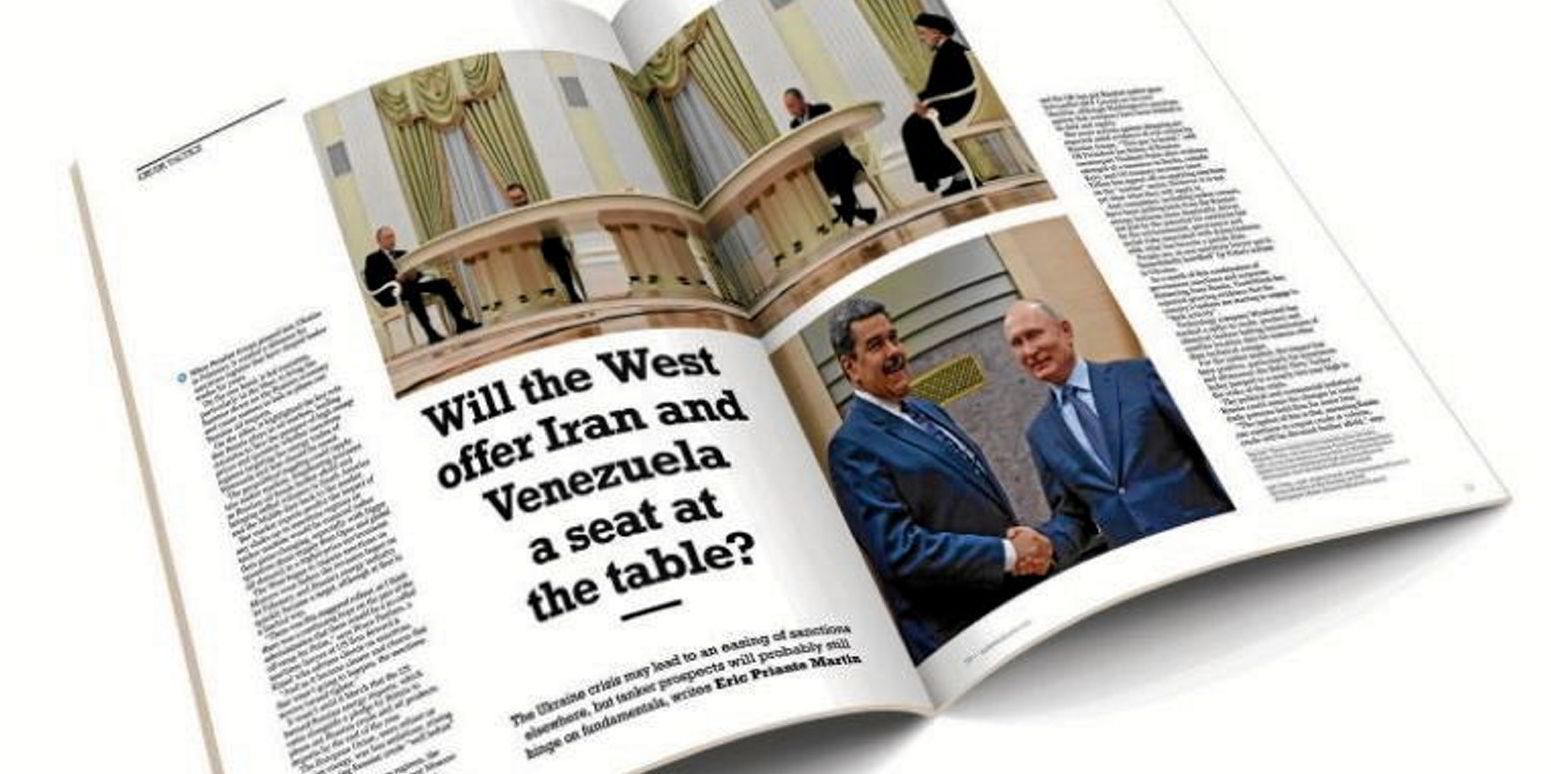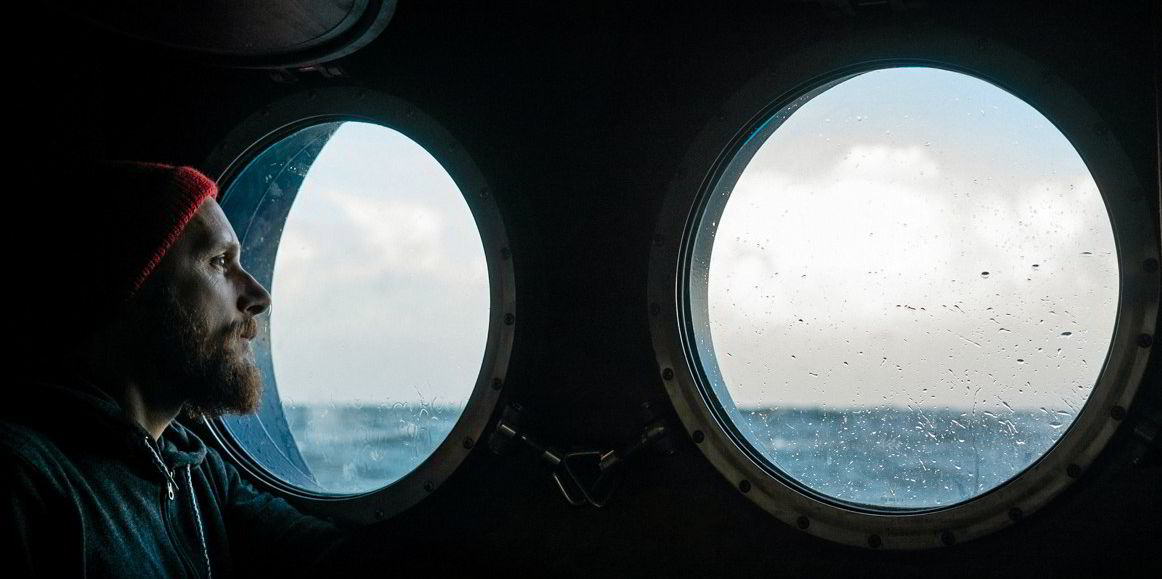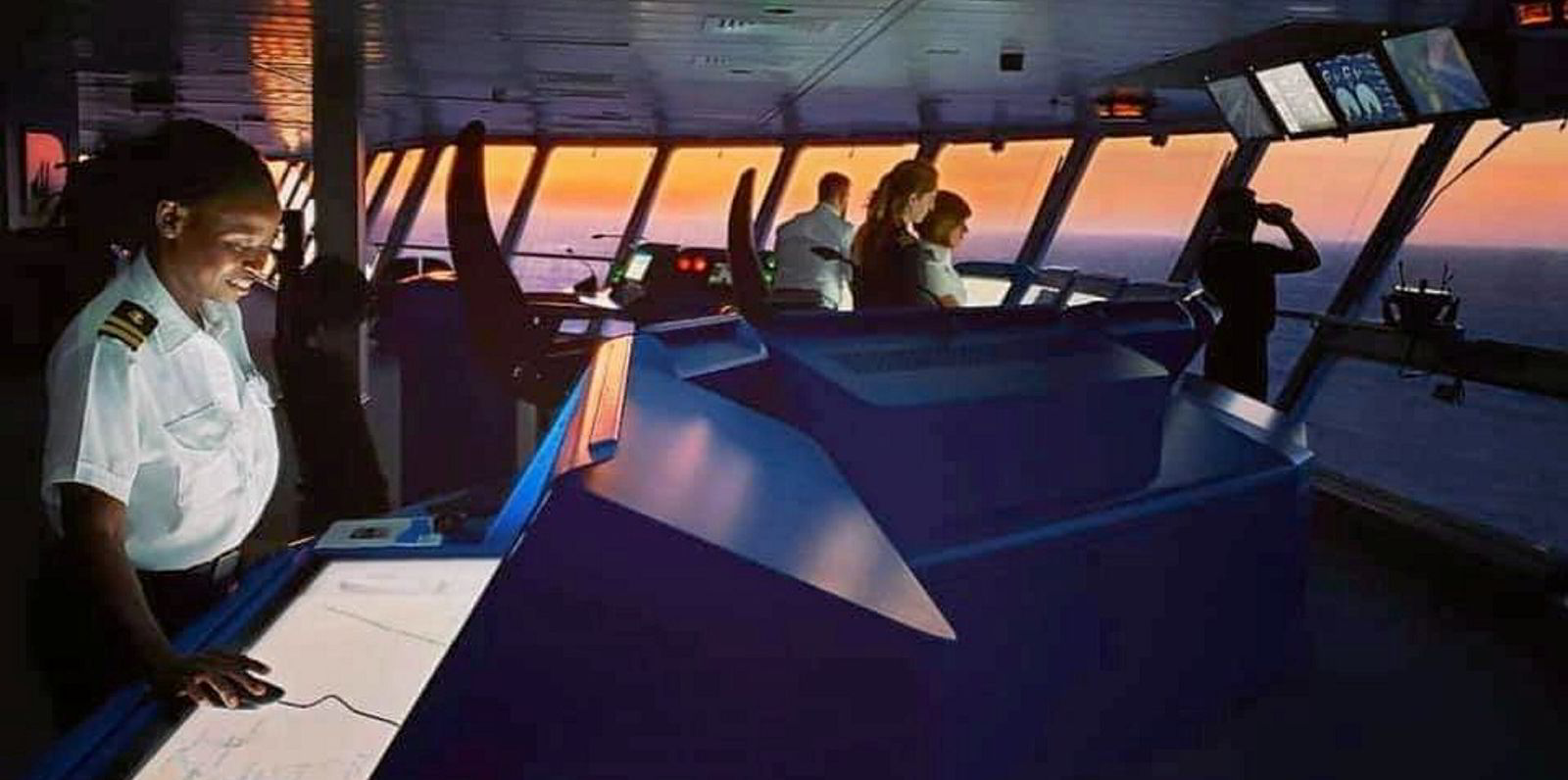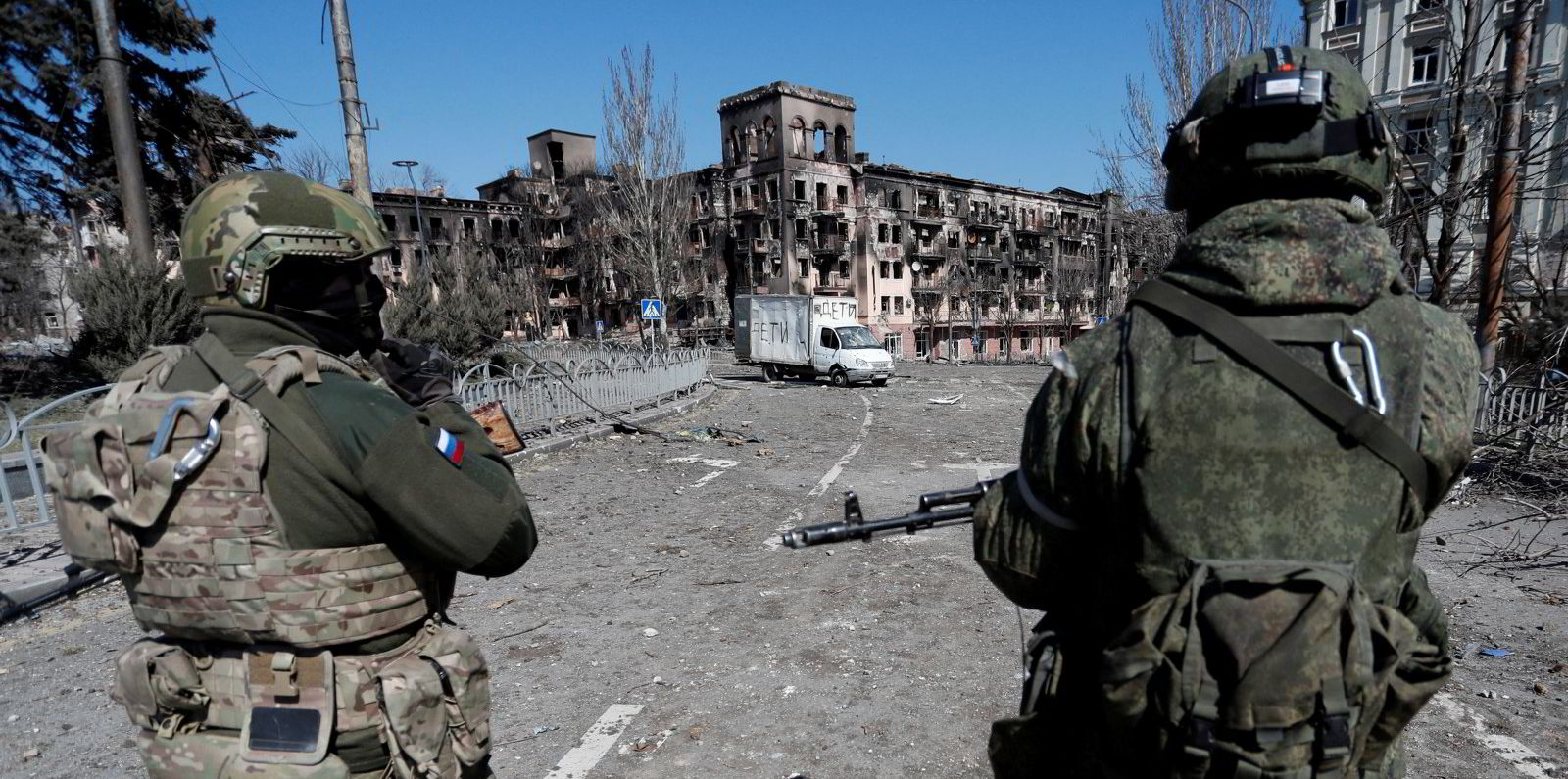
This story is part of a series in TW+ magazine on the wide-ranging impacts of the Russia-Ukraine conflict on shipping. Read the full stories when the magazine is published on 20 May.
Russia’s war in Ukraine has not yet caused a major shift in crewing patterns, but it is having psychological effects on seafarers.
Seafarers from the two countries are hugely important to the global shipping industry, making up 14.5% of the workforce, but shortfalls caused by the conflict are so far proving manageable, according to crewing sources.
However, the war is having a serious impact on some officers and ratings still on vessels, cut off from their families back home.
The Marine Transport Workers’ Trade Union of Ukraine has said 20,000 of the 76,000 Ukrainian sailors currently serving on ships around the world would like to return home to take part in the fight.
Just over 30,000 of them were at home when the war broke out, and their age means virtually all of them are now enlisted in the Ukrainian army. The union believes if most of the other seafarers return to Ukraine, it will be catastrophic for shipping.
Danica Crewing Specialists has an office in the south-western Ukrainian port of Odessa and specialises in Eastern European crew.
Hamburg-based managing director Henrik Jensen tells TW+ that Ukrainian seafarers have contracts lasting between four and seven months, so not all crew are due for a change. Most of those whose contracts are ending are extending their deals, to see how things develop.
“We have some crews who understandably want to return to Ukraine to be with their families; they sign off and go home,” he says.
The International Transport Workers’ Federation (ITF) union in Ukraine has asked that crew required by the government to stay in the country be allowed to leave to join vessels.
“I suspect the Ukrainian government has more urgent matters to deal with than setting up a system controlling this, but it is of course a good initiative to try,” Jensen says.
However, if Ukrainian seafarers are allowed to leave the country, as ITF Ukraine has requested, he believes the situation for the industry could normalise fairly quickly.

Jensen says there is no way the 40,000-plus Ukrainian officers can be replaced overnight, although he adds: “At this stage that is not likely to be necessary. If the current situation continues for some time, then of course there will be a shortage. However, the tenure of a senior officer is typically four months.
“If we extend their onboard period by a month, then suddenly there is 25% more capacity available. I think the problem will be solved in that way — the tenure on board will be stretched, as there is a shortage of relievers.”
Ukrainian seafarers bring in about $3m to the country each year.
One Ukrainian officer tells TW+ he believes they need to keep working to help finance the rebuilding of the devastated country.
“I know a lot of seafarers who got stuck in Ukraine, some of whom came home recently and some were about to go to their vessels. Every one of them is now afraid to lose their jobs for an unknown period,” he says.
Danica has so far not seen serious conflicts on board between Russians and Ukrainians. “We have a high retention rate and crews have been shipmates for a long time. They know each other and respect each other,” Jensen says.
We’re a team, we’re a family, therefore nobody talks about the war, not on our vessels, not in our office, because on such an emotive topic as this you will never persuade the listener of your point of view
Mark O’Neil
“We try to manage this pro-actively and advise our crews and captains that, while obviously the war is a matter of serious concern, we also need to concentrate on doing our professional job — getting the ship and cargo safely from A to B.”
And he argues that masters are benefiting from the skills learned when overcoming the leadership challenges presented by managing long-overdue periods on board during the Covid-19 pandemic.
But he admits it is stressful for seafarers to see their home country in distress.
“Some of our crews are from Mariupol, some of them are even in a traumatic condition. Some of them have not been in contact with their families since 2 March and they can see photos and videos on the news of how Mariupol looks.
“We have one crew member who has had a nervous breakdown and is now in mental healthcare in a hospital.”
Columbia Shipmanagement (CSM) and partner Mental Health Support Solutions (MHSS) have sent in a team of 320 Ukrainian psychologists to work with displaced seafarers and their families in Poland and Romania, as well as raising $1.3m to support them.
CSM has more than 600 Ukrainians and 800 Russians among its 15,000 seafarers.
Chief executive Mark O’Neil tells TW+: “On so many levels this Ukrainian war is such a dreadful thing. We’re a team, we’re a family, therefore nobody talks about the war, not on our vessels, not in our office, because on such an emotive topic as this you will never persuade the listener of your point of view.
“We’ve largely been very successful in that. People have focused on doing their jobs.”
CSM has long recognised a link between mental health and operational performance and safety.
With so many crew members having emotional links to the conflict, it could be a huge distraction professionally and operationally.

“By doing this we are providing really effective care to the victims, but also we’re giving some peace and solace to our Ukrainian and Russian seafarers that their families are safe and provided for. That allows them to calm down and focus on what they’re doing,” O’Neil says.
The pandemic has made CSM’s organisation more resilient: “I think we can deal with anything. It’s immensely stressful and challenging, but we’re looking at increasing our international crew pool, we’re looking at protecting the jobs of those seafarers impacted.”
MHSS chief executive Charles Watkins says some seafarers want to get off vessels as soon as possible. They are suffering huge stress and panic attacks, and cannot work.
“They want to see their families; some haven’t heard from their families in dangerous areas,” he says. “We counsel and stabilise them, and work with captains to make sure the seafarers are not working; it’s not safe.
“The husbands want to come and see their families, but the families tell us to convince them to keep working.”
Families want crew members to finish their contracts and then visit, he adds. “It’s about managing expectations from both parties.”
Seafarers in Ukraine who are fighting for their country, or who are unable to leave, need to know there are jobs for them to come back to, O’Neil says, as do those on board who will leave or be rotated.
“The short-, medium- and long-term security of our Ukrainian seafarers is sacrosanct to us,” he adds. That is also true for Russians and any other nationalities. “We will cope,” he says.
While seafarers living close to western borders can return home relatively safely, the situation is much more serious for those in the east of Ukraine, as they have to travel a long distance and pass through areas under more sustained attack.
Some seafarers want to be reunited with families who have fled Ukraine. “They are telling us they will be ready to return to sea again after about a month’s time with their families,” Jensen says.
Other crew members want to sign off and join the Ukrainian forces.
“This is currently a small number. Of course we follow their request to sign off,” he says. “There is a shortage of seafarers, but so far manageable, as not all Ukrainian crews are off-signing at the same time and we are able to fill the open slots we have using other nationalities, or from Ukrainian seafarers who signed off but did not return to Ukraine.
“We are reaching out to these seafarers through social media and have stepped up our job advertisement efforts.”







